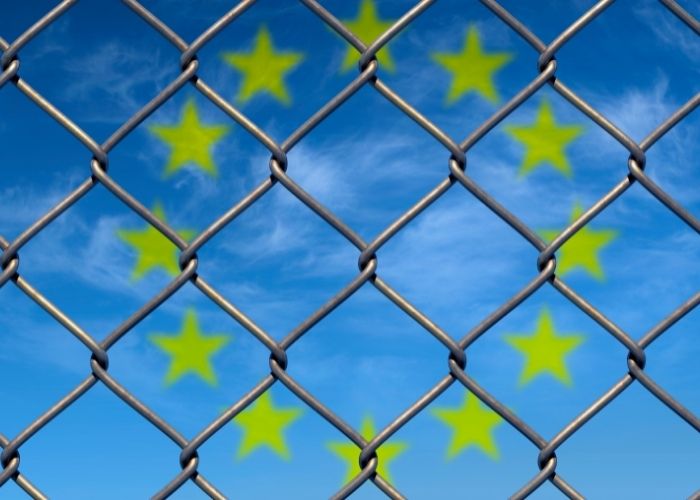MADRID – Since yesterday (Tuesday) afternoon, dozens of Moroccan riot police have been blocking the road from Fnideq to Ceuta. They mainly stop young people who hope to reach Spanish territory. Just like 8,000 others have managed since Monday,
The main passage of those successful attempts was at the breakwater separating the two countries. The fact so many people managed this was because the Moroccan authorities did nothing to stop the invasion of immigrants. Morocco’s reaction and renewed action comes over day after the massive entry of immigrants into Spain by sea began. The numbers increased constantly and eventually resulted in 8,000 migrants reaching the Spanish enclave.
The Moroccan authorities have evacuated thousands of people. Moroccans and people of other nationalities have been trying to illegally enter Spanish territory since Monday. The operation is taking place on the beach east of Ceuta and has not yet been completed, Efe reports.
Arrested and expelled
Hundreds of Moroccans and Sub-Saharan Africans tried to reach Fnideq (formerly Castillejos). Local Moroccan media reported Tangier authorities had expelled 1,350 irregular migrants to southern cities, most of them from Sub-Sahara. According to police sources close to the Royal Palace cited by digital site Le360, most of these emigrants have been arrested. In the last 24 hours, arrests were made in areas of Tangier, and on trains from Rabat and Casablanca. Finally, they were transferred back in buses.
The same media quoted a source from the Directorate-General of National Security (DGSN) in Morocco. It was pointed out that relief forces have been deployed to the northern beaches. And also that more “clandestine emigrants” would be driven south in the coming hours.
Morocco’s response comes more than a day and a half after the massive influx of immigrants began. Of the 8,000, according to the latest counts, around half have returned to Morocco, the Spanish Ministry of the Interior said.
Action from Morocco after EU warning
Morocco acted after a warning from the European Commissioner for Home Affairs, Ylva Johansson. She reminded the Moroccan authorities that ‘Spanish borders are European borders’. Johansonn also demanded that Rabat fulfil its obligations to monitor irregular emigrants. Futhermore, that it accepts the return of people who have left Morocco in this way and have no right to remain on European territory.
In an official statement from La Moncloa, Pedro Sánchez described the situation as a ‘challenging’. And, with regard to border surveillance and the security of the people of Ceuta and Melilla, assured: “we guarantee your safety at any challenge, for every event and under all circumstances”.
Morocco has made no statement on the alleged relaxation of border security and the situation in Ceuta. However, ambassador to Spain, Karima Benyaich, on Tuesday, disguisedly stated that ‘there are actions that have consequences that must be borne’. According to Spanish media, he was referring to the humanitarian shelter in a hospital in Logroño of the leader of the Polisario front, Brahim Gali. This was said to have angered the Moroccan authorities.
In Ceuta, Spanish soldiers deployed on the beach of Tarajal help the immigrants, Moroccans, and people from other African nationalities, who arrive exhausted on the Spanish coast. Meanwhile, hundreds more continue to await their chance on the Moroccan side of the border.


